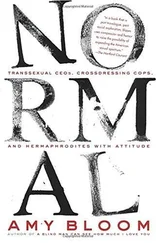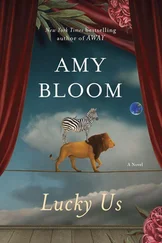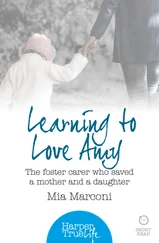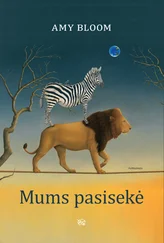The backseat was layered with jeans and cotton underpants and all of Spivey’s healthy-heart cookbooks and a shopping bag spilling new shampoo, new soap, two kinds of mouthwash and a sponge still in its natural loofah shape. Elizabeth had shopped like she was sending herself to camp. Camp Max, the special endless summer for wayward girls. She would be with him, in some small airless place, until he died or recovered or she killed him. She had a full tank of gas, she had her coffee, her candy, and enough cash. The radio was on and the windows were cracked open.
“Play ‘Woolly Bully,’ ” said the tired Jersey voice. A housewife/mother voice, a three glasses of canned juice, three bowls of leftover Cheerios floating in thin, sweet milk by 7:25 a.m. voice. Screaming at the kids to remember their books, remember their notes, remember not to let the cat out. Kisses to remind them that she screams only because she loves them, wants them to succeed, wants them to be somebody. And then there is nobody home until three. A no-power, no-money voice.
“Okay,” said the flat smirky deejay. “And do you have a woolly bully, ma’am?” Like he’s behind her in the supermarket, laughing at her fat ass and curlers and the bent-in backs of her loafers.
“Oh yeah, honey. I did used to have one … but I divorced him.”
She’d fooled them both, and the deejay laughed with Elizabeth, in the pleasure of acknowledging grace and steel where they hadn’t seen it. Maybe he, like Elizabeth, imagined the caller as a mother, imagined the watery orange juice coming with the kind of mothering you never stop trying to get, or get away from.
“Lady, you can call me anytime.”
“Likewise,” the woman said. “So, put on my man, Sam the Sham,” she said.
Elizabeth sang along. She began a list with her right hand.
In his hospital room, newspapers beginning to pile up by the bed, roses wilting on rubbery stems, Max made his offer.
“If you come stay with me for a little, you might get to watch me die. Or kill me at your leisure. Could you stick around?”
Elizabeth wheeled him to the car, sliding him into the backseat. Two orderlies stood by as if to help, but Elizabeth managed to bang Max’s head against the car door and they didn’t move.
“I want you to live, Max.” She buckled his seat belt.
“Oh, sweetheart,” he said, “I always try to give you what you want.”
“No. You gave me what you wanted me to have. I’m not arguing with you. I want you to live.”
“I don’t think so, baby.”
Elizabeth put her face an inch from Max’s ear and spoke very softly and clearly.
“You better fucking live. If you don’t make up your mind to live, I’m going to camp in your goddamned room and make sure you get intravenous nourishment and no painkiller. Okay? You better fucking live.”
Oh, Do Not Let the World Depart
“Elizabeth, if you could get Max out of the place for a few hours, I could fix it up a bit.”
“Mother, he hates to go out. Why can’t you do what you’re going to do while he’s here?”
“I’m sorry, old thing. I simply can’t.”
Elizabeth understood that it wasn’t a problem of logistics. Margaret could not make beauty in the presence of death. Elizabeth was only getting through the year by keeping her eyes closed. She hadn’t looked in a mirror or even directly into Max’s face for weeks. Why should Margaret step up to unnecessary pain?
“All right,” Elizabeth said, “we’ll go out to Mad Nan’s Orchards and get some apples and feed the ducks. You know, I can’t have him out for more than two and a half, three hours. Is that enough?”
“Fine. Call me when you’re about to get your car.”
“Mother, we don’t need split-second timing for this. It’s not a military maneuver, for Christ’s sake.”
“I am coming with three assistants and a van. I am going to do everything but paint, and I promise not to rearrange his books or records. I don’t think Max would like to feel that I’m doing him a large favor, do you? I do think he can tolerate the idea that your mother is coming in to tidy things up a little, and to make her daughter’s life more pleasant. All right?”
“All right. Jesus, Margaret, what a business. But thank you. What day?”
“Go for a spin on Thursday. That gives me four days to set things up and get these blighters moving.”
“You do that, you get those blighters moving. Thank you.” Elizabeth put down the phone. Was God obliged to close one big window in order to crack open this ridiculously tiny door?
Elizabeth used to stand in the kitchen of her parents’ house, before Margaret had her downtown office, listening to her mother do business in that same happy, crisp, pugnacious voice. Four months ago, standing in Max’s small, dirty kitchen, helping bag chicken breasts and turkeyburgers, her mother tried again.
She asked Elizabeth to talk to her husband’s partner.
Elizabeth said, “Rachel”—now that Rachel was a doctor, Margaret no longer flinched when she was mentioned—“says Zoltow’s very friendly with his female patients, friendly to the point of lawsuit.” She slid two skinless chicken breasts onto a plate of Mrs. Dash and flipped them over.
“I’m sure Aaron could suggest someone else, then. A woman.”
“Why would I go?”
“This is no way to live.” Margaret waved her small hand around the three crowded rooms, the couch covered with blankets and Elizabeth’s underwear, the dying plants, the cornucopia of medications spilled across the kitchen table. “You’re twenty-four. Why are you doing this? Do tell me. I would like to know.”
“He’s going to die, and he was there for me when I needed him. It’s all right. It won’t take that long.”
Margaret nodded. Considering they’d never discussed Elizabeth’s relationship with Max and that Margaret never allowed herself to think anything untoward about his constant and fatherly affection for her daughter, grateful that some paternal figure had kept his hand in, it was amazing how quickly she understood. “Nothing I can say, then? Trip to Europe, that sort of thing?”
Elizabeth shook her head and put her hand out to wipe crumbs off the counter. If she had known that her mother would never again have money to spare, she might have said yes and seen Paris.
Margaret caught her by the wrist. She blinked hard and did not cry and did not say, Is your life so terrible that you prefer this? She pulled Elizabeth’s hand so close Elizabeth could feel her mother’s warm breath on her palm. Margaret said, “You need a manicure,” and pulled out a fresh bottle of Cherries in the Snow and an orange stick.
“Max, on Thursday my mother’s coming to do a little housecleaning for us and hang a few pictures.”
Max opened his eyes, his hair sticking up all over his head, like a great grey baby.
“Pictures? I can’t wait. The entire history of the Empire, in jewel tones, right here in my boudoir. Tell her thanks.”
“I did.”
He closed his eyes again, tugging the comforter up over his shoulders. When he was a little boy, he loved and imitated his stepfathers Irish tenor, the only sweet sound in a house of Mississippi ululation and breaking glass. “’Twas on the Isle of Capri that I met her, something something a thin golden ring on her finger, ’twas good-bye on the Isle of Capri.” The edge of the comforter poked his leaking right eye. He pulled it beneath his chin, pretended to sleep, and slept.
He woke up to find Elizabeth in his mother’s pale blue velvet cloche and the pale blue wool peplum jacket she’d worn to demonstrate sobriety, and a withered white garter belt, with its rusty metal clasps swinging back and forth over Elizabeth’s cotton panties. She wore her own basketball sneakers and white socks.
Читать дальше












